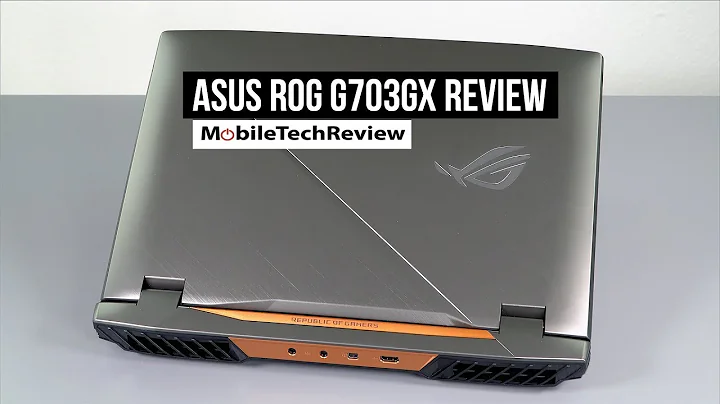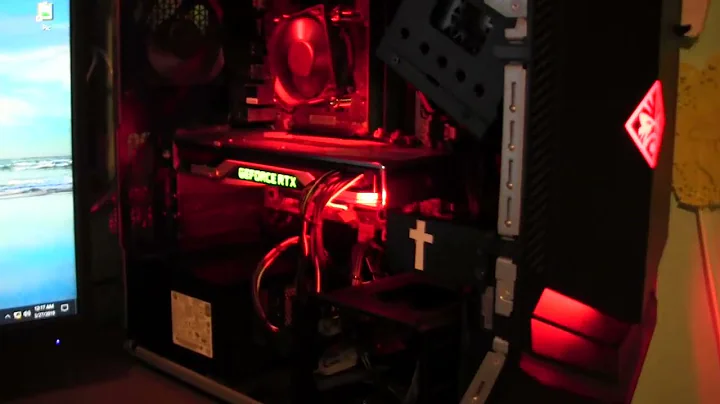The Ultimate Showdown: Intel vs AMD - Reviewing the Intel 13th Gen CPUs
Table of Contents:
- Introduction
- The Release of Intel's 13th Gen CPUs
- Intel's 12th Gen: A Return to Form
- Intel's 13th Gen: Improving Performance
- AMD's 7000 Series: A Worthy Competitor
- Comparing Intel and AMD CPUs
- The New Generation of Intel Chips: Raptor Lake
- Pricing and Affordability
- Platform Longevity: Intel vs AMD
- Overclocking and Thermal Performance
- Conclusion
The Battle of Intel vs AMD: The Next Generation of CPUs Unveiled 💻
Introduction
The world of CPUs is an ever-evolving battlefield, with Intel and AMD constantly striving to outperform each other in terms of speed, power, and efficiency. Today, we dive into the highly anticipated release of Intel's 13th generation CPUs and compare them to AMD's 7000 series processors. From pricing and performance to platform longevity and overclocking capabilities, this article aims to provide a comprehensive overview of these powerhouse CPUs. So buckle up, tech enthusiasts, as we embark on an exciting journey into the world of high-performance computing.
The Release of Intel's 13th Gen CPUs
In the highly competitive world of CPUs, Intel's 13th generation lineup has made a grand entrance. With the release of the Core i9-13900k, Core i7-13700k, and Core i5-13600k, Intel aims to solidify its position in the market. However, the release hasn't been without its fair share of controversy. Issues such as pricing discrepancies and Newegg's markup have stirred up frustration among tech enthusiasts. Despite these minor setbacks, Intel has managed to generate substantial excitement by offering pre-orders and promising impressive performance improvements.
Intel's 12th Gen: A Return to Form
Before delving into the details of the 13th gen CPUs, it's important to understand the pivotal role played by Intel's 12th gen processors. With the introduction of the LGA 1700 line of chips, Intel brought back the performance cores (P cores) and efficiency cores (E cores) architecture. This innovative design allowed for seamless multitasking and optimized performance, especially when paired with Windows 11. Intel made a significant comeback with the 12th gen, effectively erasing the shortcomings of their previous generation, known as Rocket Lake.
Intel's 13th Gen: Improving Performance
Building upon the success of the 12th gen, Intel's 13th gen chips take performance to new heights. During the Intel Innovate conference, jaw-dropping demonstrations showcased the CPU's ability to handle Game development and background tasks simultaneously, without sacrificing performance. The addition of the Thread Director, coupled with improvements in core architecture, has solidified Intel's dominance in the gaming arena. With each core boasting impressive base and boost clock speeds, the 13th gen CPUs ensure a seamless and powerful computing experience.
AMD's 7000 Series: A Worthy Competitor
While Intel has been basking in the glory of their recent successes, AMD has been quietly working on their own lineup of high-performance CPUs. The release of the Ryzen 7000 series CPUs brought stiff competition to Intel's doorstep. With impressive benchmark results and widespread acclaim, the 7000 series has managed to carve a niche for itself in the market. However, the high cost of entry, including the need for new motherboards and DDR5 RAM, has been a drawback for some potential buyers.
Comparing Intel and AMD CPUs
In the battle of Intel vs AMD, it's important to analyze the strengths and weaknesses of both competitors. While Intel's 13th gen CPUs offer more cores, Threads, and affordable price points, AMD's 7000 series boasts higher base and boost clock speeds and compatibility with DDR5 RAM. Each brand has its own unique set of advantages, catering to different user requirements. Depending on factors such as budget, platform longevity, and specific use cases, the choice between Intel and AMD can vary.
The New Generation of Intel Chips: Raptor Lake
Looking towards the future, Intel has announced the development of their next generation of CPUs, codenamed Raptor Lake. This new line of chips is set to introduce even more performance enhancements, along with improved power efficiency. While specific details are scarce at this point, Intel's commitment to constant innovation and technological advancement is evident. Raptor Lake promises to elevate the gaming and computing experience to new heights, making it an exciting prospect for tech enthusiasts.
Pricing and Affordability
One crucial factor that often influences purchasing decisions is the price point of CPUs. Intel's 13th gen chips offer a competitive edge in terms of affordability, with lower price tags compared to their AMD counterparts. However, it's important to note that budget-friendly options such as the AMD Ryzen 5800x3D still provide exceptional gaming performance at a lower cost. Ultimately, the decision between Intel and AMD will depend on individual budgets and performance requirements.
Platform Longevity: Intel vs AMD
Another aspect to consider when investing in a new CPU is the longevity of the platform. AMD has made promises regarding extended support for their platforms beyond 2025, providing users with a sense of longevity and upgradability. Conversely, Intel's LGA 1700 platform will come to an end after the 13th gen, making it less future-proof. If upgradability and compatibility with newer technologies are key concerns, AMD may offer a more viable option.
Overclocking and Thermal Performance
For enthusiasts who love to tinker with their CPUs, overclocking is an enticing feature. Intel's 13th gen CPUs, particularly the Core i7-13700k and Core i9-13900k, offer a significant amount of thermal headroom for overclocking. The availability of tools like Intel XTU (Extreme Tuning Utility) allows users to unlock the full potential of their CPUs, albeit with the caveat of voiding the warranty. On the other HAND, AMD's Ryzen CPUs, while offering excellent thermal performance, have limitations when it comes to overclocking.
Conclusion
In the battle of Intel vs AMD, there is no clear winner. Both manufacturers offer powerful CPUs that cater to different user requirements and price points. Intel's 13th gen CPUs provide exceptional gaming performance, affordable pricing, and promising overclocking capabilities. Meanwhile, AMD's 7000 series CPUs deliver impressive base and boost clock speeds, platform longevity, and higher compatibility with DDR5 RAM. Ultimately, the choice between Intel and AMD boils down to individual preferences and specific use cases. As consumers, we are fortunate to have a range of exceptional CPUs to choose from, ensuring that we can find the perfect fit for our computing needs. So go ahead, make an informed decision, and embark on an extraordinary computing journey!
 WHY YOU SHOULD CHOOSE TOOLIFY
WHY YOU SHOULD CHOOSE TOOLIFY






























![AMD's CPU Innovation Status & The Future of Ray Tracing Revealed! [Q&A November]](https://i.ytimg.com/vi/2LS2SsP-QEU/hq720.jpg?sqp=-oaymwEcCNAFEJQDSFXyq4qpAw4IARUAAIhCGAFwAcABBg==&rs=AOn4CLDzmGv9GawIAInhb1ewzoguXovTqQ)



